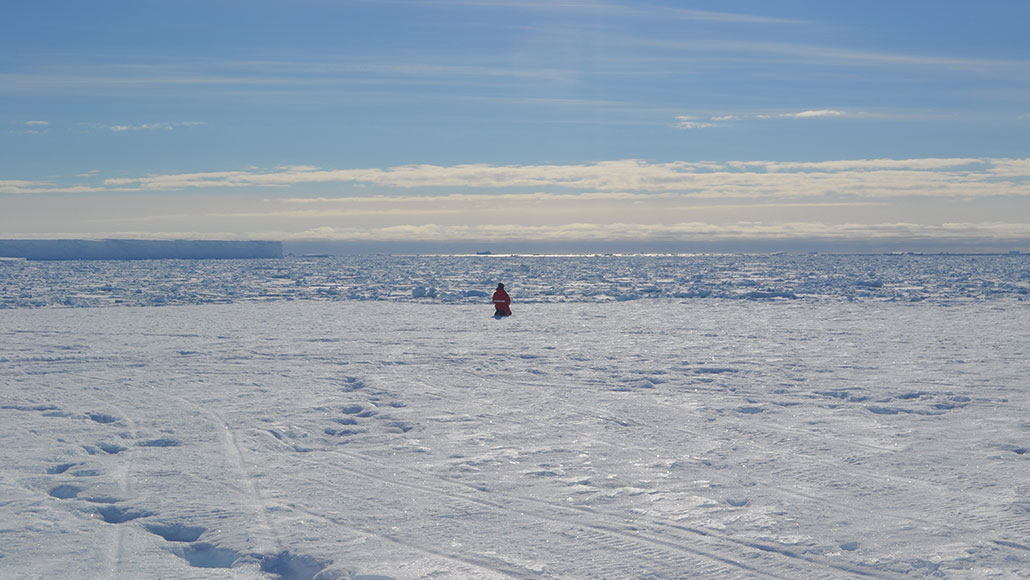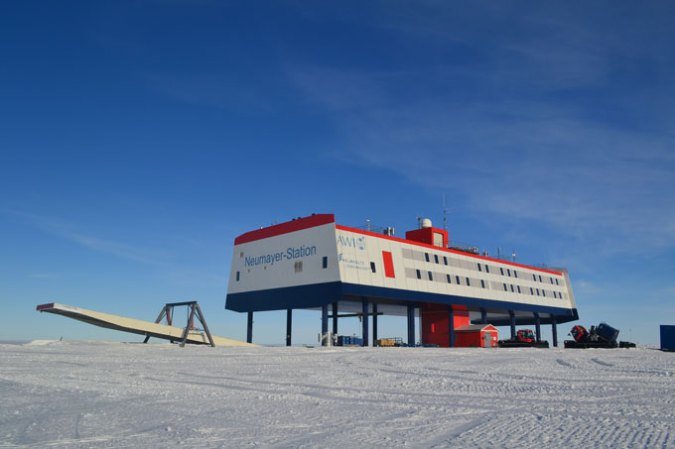Scientists’ brains shrank a bit after an extended stay in Antarctica
The effects of isolation and a monotonous environment may be to blame

Snow and sky that surrounds a German polar research station called Neumayer III go on for kilometers. A crew of nine that stayed through the dark winter lost some brain volume, possibly due to the monotonous conditions.
Alexander Stahn/University of Pennsylvania, Charité-Universitätsmedizin Berlin








